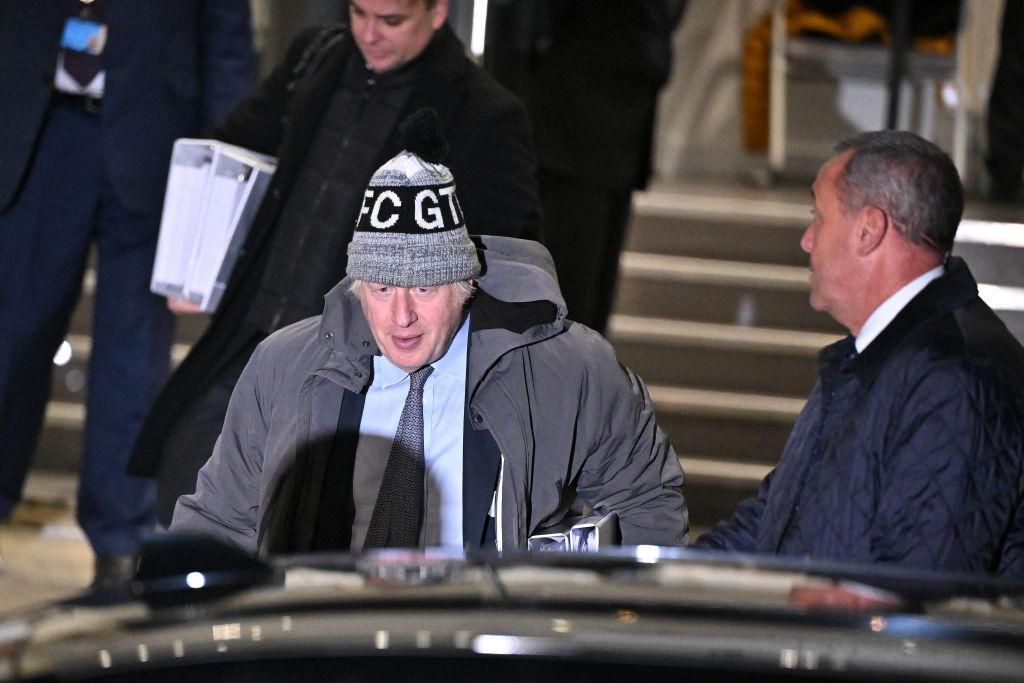Boris Johnson had clearly come to the Covid Inquiry intending to be magnanimous about everyone, even advisers like Dominic Cummings who had ended up causing him so much grief – and who had not been at all complimentary about him in their evidence to the inquiry. He largely stuck to that persona in the first of his two lengthy evidence sessions today, with another to come tomorrow. He repeatedly praised Matt Hancock as doing a good job in difficult circumstances and who ‘was a good public communicator’. He even tried to politely explain away the more vicious behaviour of aides within government as variously being just the sort of thing bright people do in the heat of a crisis – though he also said he had rung Helen MacNamara to apologise for the language used about her by Cummings in one of his WhatsApp groups (of which Johnson was a member).
As pre-trailed, Johnson tried to play down the significance of a lot of the WhatsApps that the Inquiry has spent so much time examining. It was notable that Hugo Keith KC made a comment early on that he wasn’t interested in the salacious aspects of the WhatsApp conversations, as though he may have noticed frustration outside the inquiry room with the amount of focus devoted to who swore at who. Johnson described the messages as ‘the kind of stuff that would never have previously come out from any administration because it’s now on instant social messages of a kind that previous governments didn’t have: this is instant chit chat between people who would normally have said this to each other’s faces’. He even went off into a character study of the kind of person who ends up in government, saying: ‘You’ve got a lot of very talented, sometimes super-confident, sometimes egotistical people who are crushed with anxiety about what is happening to their country, who are wracked secretly with self-doubt and self-criticism and externalise that by criticising others and it’s human nature’.
But his evidence also made plain that the way Johnson thought government should be run contributed to this atmosphere of hostility. He told the inquiry that he spoke ‘so bluntly and freely in meetings’ because he ‘wanted to give everybody cover to do the same’ and discourage agreement or consensus which would be damaging to the country. We have already known for some time that this was Johnson’s preferred modus operandi: to play advisers off against one another to force them to sharpen their arguments so that he could make what he regarded as the best decision. ‘I knew that some people were difficult. I didn’t know how difficult they were, clearly. But I thought it was better on the whole for the country to have a disputatious culture in No. 10, rather than one that was quietly acquiescent to whatever I or the scientists said.’
He disputed suggestions he took his eye off the ball in February 2020
The Inquiry chair Heather Hallett asked him whether there were any changes to the structure that he thought might improve decision-making, and he replied that there should be more clarity about the difference between decision-making meetings and those that were just for discussion, because he hadn’t known when he was going in to them.
He disputed suggestions he took his eye off the ball in February 2020 as cases began to rise – this was the one moment of real tension between the former prime minister and Keith, with Johnson claiming the counsel to the inquiry had suggested he had been putting his feet up at Chevening, before apologising ‘unreservedly’ for confusing the lawyer with testimony given by Cummings. He then claimed that the whole establishment ‘should collectively have twigged much sooner’ about how dangerous Covid was going to be. Instead, the assumptions were too heavily based on the experience of dealing with Sars and Swine flu.
What was Johnson trying to get out of today? The conclusion that many of the mistakes made by the government were an inevitability of human nature, and that the culture he had created in No. 10 was for the good of the country, rather than the toxic and destructive one that others claimed hampered decision-making. This module of the inquiry is about core decision-making and how the next government can avoid the mistakes of the last, but Johnson seemed to be suggesting that other than giving meetings cleared descriptions, much of what happened was what would always happen under such pressure.







Comments